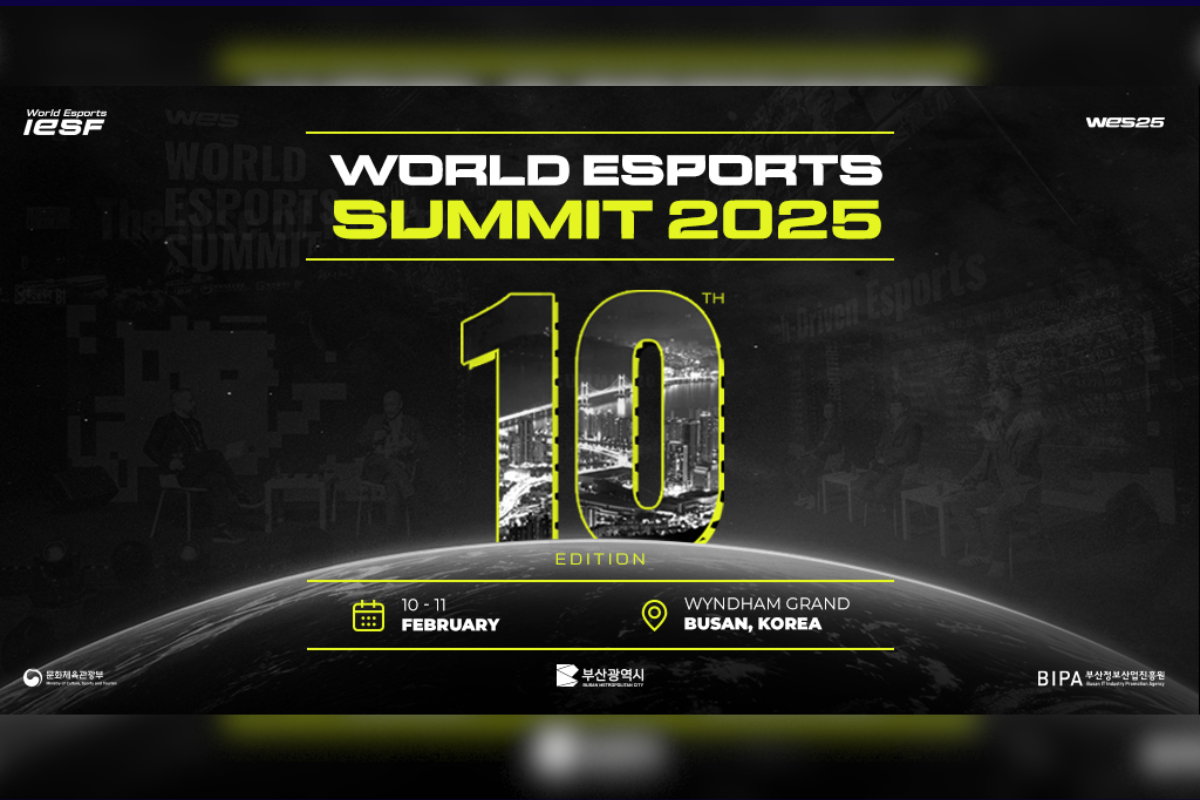Asia
2022 Commonwealth Esports Championships: ESFI gives grand send-off to Indian contingent

Esports Federation of India (ESFI) hosted a grand send-off ceremony for the Indian contingent participating at the first-ever Commonwealth Esports Championship on Sunday. The inaugural multi-nation esports tournament is organized by Commonwealth Games & Global Esports Federation; scheduled in Birmingham from August 6-7.
The members of the DOTA 2 and Rocket League, who will be representing the country at the prestigious event, were present on the occasion alongside Lokesh Suji, Director ESFI & VP- Asian Esports Federation, Satinder Sikri (VP-Haryana Esports Association) and Yash Bhalawala (Gen Sec-Esports Association of Gujrat) at INOX Insignia in Ardee Mall, Gurgaon.
ESFI also unveiled the Indian team’s official kits for the Commonwealth Esports Championships during the event.
“Esports is like every other sport and we wanted to make sure that we bid farewell to our Indian contingent in the best way possible ahead of the big event. We are grateful to INOX for helping us organize this wonderful send-off ceremony. The rise of Esports in India in the last few years has truly been remarkable and the participation of two teams on behalf of the nation on the global stage is a result of that. We, at ESFI, wish the best of luck to the Indian contingent and we are confident that they will make the nation proud,” said Lokesh Suji, Director ESFI & VP- Asian Esports Federation.
“We are honoured and super excited to be part of this inaugural Commonwealth Esports Championship and there is a high probability that esports will be a medal sport in the next Commonwealth Games scheduled in 2026” Suji added.
The Indian team in the Rocket League will be led by Hargun Singh (Hargun <2) with Sandeep Sahani and Rushil Reddy being the other two members. Team Dota 2, on the other hand, comprises captain Moin Ejaz, Ketan Goyal, Abhishek Yadav, Shubham Goli and Vishal Vernekar.
Both the teams have already proved their mettle by clinching impressive wins in the tournament’s South Asian Regional Qualifiers last month.
“I am really excited about esports being included in a Commonwealth event as this will really change how esports is perceived among people around the world. As a player, it’s a huge opportunity being given to us and we are really going to do our best to represent India as best as we can. All of us are putting in extra effort to maximise everyone’s potential and work together as a team,” Hargun said on the sidelines of the event.
“The entire team is looking forward to playing against the best teams in the world and proves our mettle. We have been paying a lot of attention to our strategies and practicing a lot in the hopes of a podium finish. Getting the chance to represent the nation in the very first Commonwealth Esports Championship is a very sweet reward to show for all of the efforts we have taken in playing this game at the highest level. A big thank you to ESFI for today’s send-off ceremony and especially for the sports psychology session that taught us a lot of valuable things,” DOTA 2 skipper Moin Ejaz added.
The players also took part in an enlightening sports psychology session “Building High-Performance Mindset” by Mitesh Jain (Founder & Chief Sports Psychologist – Mandeha). It included mental exercises and activities to improve focus, mental skills, self-confidence, motivation and communication skills for the players.
It was followed by a special movie screening for the players as they enjoyed and relaxed ahead of their long journey. The Indian contingent left for Birmingham early in the morning on Monday (1st Aug, 2022).
One of the country’s top sports and Esports specialised communication firms, Artsmith – Concepts & Visions, will continue its support for the championships as ESFI’s official communication partner.
The 2022 Commonwealth Esports Championships will be conducted at the International Convention Centre in Birmingham with the presence of the world’s top Esports teams. Alongside DOTA2 and Rocket League, PES2022 will also be part of the tournament.
Powered by WPeMatico
Asia
Books on Wheels: DigiPlus Foundation Brings Mobile Library to Boost Literacy Among Aurora’s Young Learners

DigiPlus Foundation continues to champion inclusive learning by empowering young learners in Aurora Province through a meaningful partnership with youth-led volunteer group Sikat Aurora.
Following six months of sustained support for Sikat Aurora’s Abot Ko ang Libro storytelling initiative, an activity that brings reading sessions and learning spaces closer to children in local communities, DigiPlus Foundation and GameZone surprised the group with a new mobile library designed to support their mission beyond a single location. The mobile library will allow Sikat Aurora volunteers to roam across Aurora Province, reaching more children with books, learning materials, and storytelling activities.
The donation strengthens Sikat Aurora’s efforts to uplift nonformal education as a vital complement to classroom learning, especially for children with limited access to books and educational resources. By taking learning on the road, the mobile library transforms storytelling sessions into a scalable, sustainable program that can reach far-flung communities across the province.
RJ Belen, Founder of Sikat Aurora, said: “We are truly grateful for the trust and support of DigiPlus Foundation. This mobile library will help us reach more young learners in Aurora and strengthen our mission of nurturing a love for reading. Through nonformal education, we help support what children learn in school and create spaces where learning feels accessible, enjoyable, and empowering.”
“This will allow us to bring learning to children who may not always have access to educational materials, helping them build confidence and curiosity as they grow.”
Neil Orillaneda, Program Manager for Technology Education of DigiPlus Foundation, said: “Our goal is simple: no learner left behind. By supporting initiatives like Sikat Aurora’s mobile library, we help bridge learning gaps and ensure that children, regardless of location or circumstance, have access to educational resources that support their growth.”
The mobile library donation reflects DigiPlus Foundation’s belief that learning happens not only inside classrooms, but also within communities through shared stories, accessible resources, and partnerships that place children at the center of development.
The mobile library donation is part of a Php 1-million contribution from GameZone during the International Series Philippines (ISP), channeled through DigiPlus Foundation to support a range of community initiatives nationwide. Beyond education, the donation also funds livelihood support for local weavers, health program assistance for the LGBTQ+ community, aid for persons with disabilities in Cebu, and flood rescue equipment for Manila, reflecting a holistic approach to community development that addresses education, health, inclusion, and disaster preparedness.
The post Books on Wheels: DigiPlus Foundation Brings Mobile Library to Boost Literacy Among Aurora’s Young Learners appeared first on Americas iGaming & Sports Betting News.
Asia
World Esports Summit Celebrates Its 10th Edition in Busan

The World Esports Summit returns to Busan, South Korea, for its 10th edition, taking place on 10–11 February 2025.
Hosted at the Wyndham Grand Busan, the Summit will bring together 40+ speakers from the international esports ecosystem, including representatives from federations, publishers, global brands, sports organizations, technology companies, and public institutions.
Over the past decade, the World Esports Summit has provided a platform for dialogue and cooperation among stakeholders shaping the world of esports. The 2025 edition will continue this role, offering space for discussion on current developments, industry challenges, and future directions.
The Summit will feature contributions from a wide range of organizations, including Alibaba, FIBA, FIFAe, Tencent, Moonton, NetEase, FIA, Sportradar, EFG, Good Game, Telekom, among others.
Across two days, participants will take part in keynote sessions and panel discussions addressing topics such as esports governance, international collaboration, industry development, integrity, and the continued convergence of esports and traditional sports.
Further information on the program, speakers, and registration is available on the official World Esports Summit website.
The post World Esports Summit Celebrates Its 10th Edition in Busan appeared first on Eastern European Gaming | Global iGaming & Tech Intelligence Hub.
Asia
Insurgence Gaming Company Expands Grassroots Vision with MOBA Legends 5v5 Discord Play-Ins

Following the launch of its inaugural women-focused VALORANT tournament La Imperia, the Insurgence Gaming Company has announced its second competitive initiative, MOBA Legends 5v5 Discord Play-Ins, a series of open community tournaments created to make organised competition more accessible to emerging players.
While La Imperia introduced a visibility-led invitational format, the MOBA Legends 5v5 Discord Play-Ins take a different approach. The series is built around open participation and will be hosted entirely online, with all tournament operations managed through Discord. This allows teams from across India to compete in a structured setting without the restrictions often associated with invite-only events.
The Play-Ins are designed as a starting point for players and teams who want to experience organised competition. Matches will be played in a 5v5 MOBA Draft Pick format, with scheduling, match reporting, and communication handled through dedicated Discord channels.
The announcement continues Insurgence Gaming Company’s early focus on grassroots esports. The company was created to address gaps in India’s competitive ecosystem, particularly at the amateur and semi-professional level where consistent tournament opportunities are still limited.
Speaking on the launch, Jasper Shabin, Founder of the Insurgence Gaming Company, said: “With La Imperia, we focused on visibility. With the Discord Play-Ins, the focus shifts to access. Competitive players need regular places to play, improve, and test themselves, not just one-off tournaments. MOBA Legends 5v5 is one of the most accessible competitive titles on mobile, which makes it a strong fit for an open, community-driven format.”
Beyond competition, the Discord Play-Ins are also intended to build a sense of continuity. Players will have access to channels dedicated to match coordination, tournament updates, and post-game discussion, helping teams stay connected beyond a single tournament run.
With the MOBA Legends 5v5 Discord Play-Ins, the Insurgence Gaming Company continues to shape its identity around community-first formats, pairing visibility-led initiatives like La Imperia with open competitive pathways that support long-term grassroots growth in Indian esports.
The post Insurgence Gaming Company Expands Grassroots Vision with MOBA Legends 5v5 Discord Play-Ins appeared first on Eastern European Gaming | Global iGaming & Tech Intelligence Hub.
-

 Blueprint Gaming6 days ago
Blueprint Gaming6 days agoBlueprint Gaming unleashes Frankenstein’s Fortune blending dynamic modifiers with multi-path bonus offering
-

 Compliance Updates7 days ago
Compliance Updates7 days agoHow to Apply for a Finnish iGaming License: Gaming in Finland Webinar on Application Steps and Technical Standards
-

 Big Daddy Gaming7 days ago
Big Daddy Gaming7 days agoBig Daddy Gaming® Expands European Footprint After MGA Licence Approval
-

 Latest News4 days ago
Latest News4 days agoGGBET UA hosts Media Game – an open FC Dynamo Kyiv training session with journalists from sports publications
-

 Compliance Updates6 days ago
Compliance Updates6 days agoMGA Publishes Results of Thematic Review on Self-exclusion Practices in Online Gaming Sector
-

 Amusnet6 days ago
Amusnet6 days agoAmusnet Unveils Casino Engineering and Technology Milestones Achieved in 2025
-

 Brais Pena Chief Strategy Officer at Easygo7 days ago
Brais Pena Chief Strategy Officer at Easygo7 days agoStake Goes Live in Denmark Following Five-Year Licence Approval
-

 Dan Brown6 days ago
Dan Brown6 days agoGames Global and Foxium return to the Colosseum in Rome Fight for Gold the Tiger’s Rage™



















